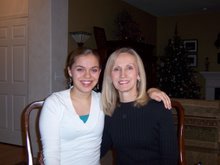 now know that many others view me as a white, middle-class, female. Automatically people may assume that I’ve had a lot of privileges and opportunities that they haven’t. I feel it is my job to be prepared for these uncomfortable situations and let others know that even though I may have experienced white privilege during my lifetime does not mean that I haven’t experienced my share of hard times or even discrimination based on gender. After learning and figuring out what sociological imagination is, I feel as if I have a better understanding of individuals. I know what my values are, I know what I believe, and I can bet that at some point my beliefs and values will be challenged, but it is up to me to draw the line. I know now that it is important to stay media literate as well as keep up-to-date with the news. How I choose to do this is my choice. I am my own gatekeeper. I can surf the channels, radio stations, and web as I choose. I will stay informed at my own free will. I am ready to be done with college and move into the ‘real’ world and be a grown up!
now know that many others view me as a white, middle-class, female. Automatically people may assume that I’ve had a lot of privileges and opportunities that they haven’t. I feel it is my job to be prepared for these uncomfortable situations and let others know that even though I may have experienced white privilege during my lifetime does not mean that I haven’t experienced my share of hard times or even discrimination based on gender. After learning and figuring out what sociological imagination is, I feel as if I have a better understanding of individuals. I know what my values are, I know what I believe, and I can bet that at some point my beliefs and values will be challenged, but it is up to me to draw the line. I know now that it is important to stay media literate as well as keep up-to-date with the news. How I choose to do this is my choice. I am my own gatekeeper. I can surf the channels, radio stations, and web as I choose. I will stay informed at my own free will. I am ready to be done with college and move into the ‘real’ world and be a grown up! Audios Amigos!
Tom Brokaw













